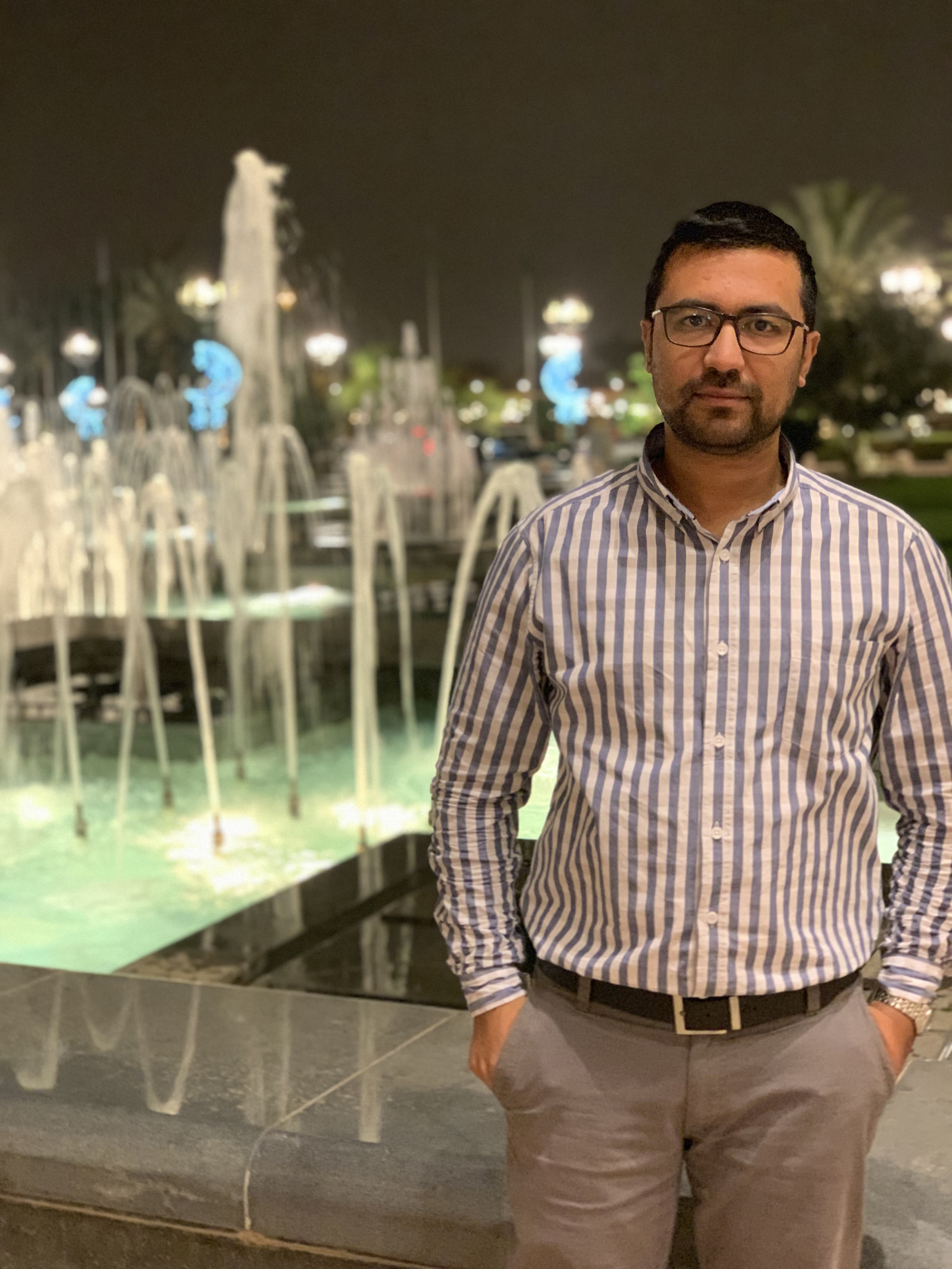A Journey Through Our Master's Program

August 29, 2024August 29, 2025
Written by Kim Anh NGUYEN
As the first person responsible for pre-selecting all candidates before they reach the jury, I take immense care in reading every application. It's a process I approach with the utmost attention because I know the weight of my decisions. I vividly remember Masood Jan's application, it stood out like a beacon. I jotted down key words on his file: Dean's Honor Role, Technical Director, Project Manager, 12 years of professional experience in Saudi Arabia and Pakistan with Huawei, and in Yemen with Nokia Siemens Networks. I knew instantly that he was someone special. He was admitted directly into our Master 2 program in Telecommunications and Networks at the Conservatoire National des Arts et Métiers (Cnam Paris).
The memory of meeting Masood on the first day is still fresh in my mind. He greeted me with warmth, and before we even spoke about academics, he proudly showed me a picture of his beautiful family, his wife and two adorable children. In that moment, I felt a connection beyond the professional. Wanting to make him feel welcome, I handed him a small gift from our department, a tote bag. He accepted it with a beaming smile and said, “I will keep it new forever.” His pride and gratitude were palpable, and it touched me deeply.
Fast forward a year, and he secured an internship at ISEP - école d'ingénieurs du numérique. His thesis, titled “Brain-Inspired Localization Model Based on Visible Light Communication for Indoor Navigation,” didn’t just earn him high praise, it won the prestigious EDITE Campagne 2023 award, ranking first. Now, as he is a PhD candidate at Sorbonne Université, I watch his progress with great anticipation. Our Master’s program was just one step in his incredible journey of knowledge, and I can’t wait to see how it continues to shape his fascinating, though undoubtedly challenging, path ahead.
Let’s hear his perspective on how our Master’s program has supported him.
What specific skills and knowledge did you gain from the CNAM program that you find most valuable in your current PhD studies?
During my time in the Telecommunications and Networks program at CNAM Paris, I gained both the theoretical knowledge and practical skills necessary for success in my PhD studies. The in-depth study of antenna technology and diversity techniques provided me with a strong foundation in designing and optimizing communication systems. Understanding various antenna configurations and their impact on signal quality has been crucial in my research, particularly in developing innovative solutions for enhancing wireless communication networks. The program’s focus on radio communications gave me a deep understanding of signal propagation, modulation techniques, and communication protocols. This expertise has been directly applicable to my PhD research, where I am investigating advanced radio communication methods and their applications in emerging technologies. The coursework on IoT introduced me to the complexities of connected devices and the data they generate. This knowledge has been instrumental in my current research on IoT systems, where I am exploring novel ways to improve connectivity and data management in smart environments. Python programming skills gained through the program internship have been particularly beneficial for data analysis, simulation, and developing algorithms in my research. The ability to write efficient code and analyze complex datasets has significantly accelerated my research process and enhanced the quality of my results. The French language courses I took not only helped me integrate better into the academic environment but also facilitated my interactions with local researchers and professionals. Being proficient in French has expanded my academic network and allowed me to access a wider range of resources and literature in my field.
How was your experience with the faculty at CNAM? Can you share any memorable interactions or mentorship experiences?
My experience with the faculty at CNAM Paris was both enriching and inspiring. The professors were not only experts in their respective fields but also deeply committed to the success and development of their students. Their open-door policy and willingness to provide guidance made a significant impact on my academic journey.
One particularly memorable interaction was with Professor Pascal CHEVALIER, who taught Antenna and Diversity. His passion for the subject was contagious, and he went beyond the standard curriculum to introduce us to the latest advancements in the field. During one of our discussions, he shared insights from his ongoing research, which sparked my interest in pursuing a related topic for my thesis. His encouragement and feedback were instrumental in refining my research approach, and his mentorship played a crucial role in shaping my academic path.
How did the CNAM program prepare you for the challenges and demands of a PhD program at Sorbonne University?
The CNAM program provided a strong interdisciplinary foundation, combining telecommunications, networks, and programming, which has been invaluable for my PhD research at Sorbonne University. The rigorous academic curriculum and hands-on experience with practical projects equipped me with the necessary technical skills and problem-solving abilities to tackle complex research problems. Additionally, the emphasis on time management, discipline, and collaboration at CNAM prepared me to handle the demanding workload and fostered a network of professionals and academics that continues to support my research endeavors.
What advice would you give to current and prospective students of the CNAM Master's program who are considering further academic research or a PhD?
For current and prospective CNAM Master's students considering further academic research or a PhD, I advise focusing on building a strong foundation in your field by deeply engaging with the diverse courses offered. Develop research skills early through projects or internships, and cultivate curiosity and persistence, as these are essential for overcoming challenges in research. Seek mentorship from professors and peers to guide your academic journey, and work on honing your writing and communication skills, which are crucial for effectively presenting your research. Lastly, embrace interdisciplinary learning and networking to broaden your perspectives and open doors to future opportunities.

August 29, 2024August 29, 2025
Written by Kim Anh NGUYEN


